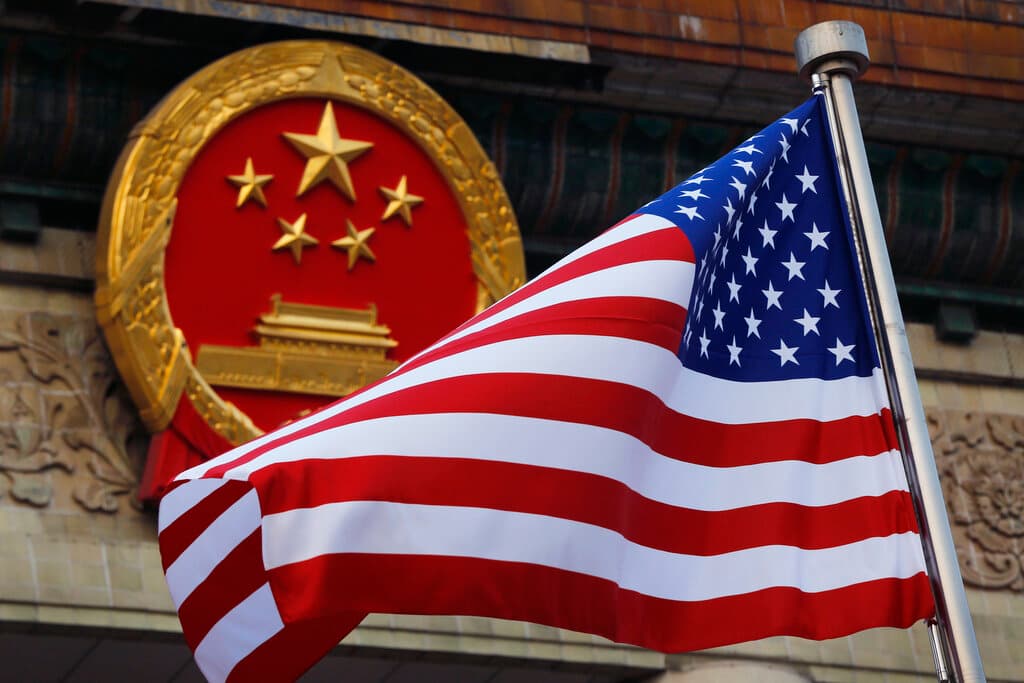U.S.-Beijing Decoupling Would Be a ‘Death Sentence’ for Universities, a Historian of Modern China Warns
American universities must resist the political tides of disengagement, William Kirby urges.

As demands grow at Washington for decoupling America from Communist China, institutions of higher education have emerged as a battleground. Joint educational ventures between the two nations, some members of Congress warn, are “at the expense of the United States.”
To a historian of modern China, though, such calls for educational decoupling are shortsighted and will ultimately hurt America’s standing on the global stage. “If history tells us nothing else, it’s that self-isolation and so-called self-reliance proved to be catastrophic for nations,” a professor at Harvard College and Business School, William Kirby, says. “And they are absolutely a death sentence for universities, because universities rely on learning from others.”
Mr. Kirby is well poised to opine on the keys to success at higher education institutions. He wrote a book in 2022 chronicling the rise of the modern university in Europe, America, and China over three centuries, and he speaks with the Sun from his office at Harvard, which has embraced the globalist model. Its campus is among the most internationally diverse in America, with students from 151 countries.
“Universities,” Mr. Kirby says, “can sometimes do things that governments can’t or won’t.” While the number of American students in the People’s Republic of China is low — a lingering consequence of the nation’s restrictive Covid policies — Mr. Kirby points to the triumph of Chinese-American enterprises despite geopolitical headwinds. “Each one of them is doing remarkably well coming out of what could have been a catastrophic period for them,” he says.
Despite concerns over a decline in enrollments at joint venture universities, New York University’s campus at Shanghai and Duke University’s campus at Kunshan are both expanding. The Schwarzman Scholars program at Tsinghua University at Beijing continues to draw students from elite American universities. It seeks “to build a global community of future leaders who will serve to deepen understanding between China and the rest of the world.”
Some members of Congress, though, are looking to undermine these educational partnerships. In July, the chairman of the bipartisan select committee on the Chinese Communist Party, Congressman Mike Gallagher, and Congresswoman Virginia Foxx of the Education and the Workforce Committee opened an investigation into the University of California Berkeley’s joint institute with Tsinghua.
“The PRC abuses seemingly innocuous research collaborations like the one between Berkeley and Tsinghua to advance PRC science and technology goals,” the lawmakers warned, “at the expense of the United States.” The joint venture allegedly provides the People’s Republic with access to the expertise and resources of Berkley in order to bolster its military.
Asked by the Sun about the potential for Chinese espionage through such initiatives, Mr. Kirby says that risk “is very small and controllable compared to the advantage that we gained by bringing the best and the brightest of the world to come to the United States.” The health of America’s undergraduate and graduate schools, he urges, depends on recruiting top talent, even from the nation’s greatest geopolitical competitors.
The Chinese government, meanwhile, is “powerfully intrusive” in the operations of its universities, Mr. Kirby says. China’s C9 group of its leading universities joined three groups of research universities in America, Australia, and Europe in expressing a shared commitment to the “pursuit of excellence” and “academic freedom” in a 2013 statement at Hefei. President Xi’s regime has rendered this declaration difficult.
“They have not always been able to act on those values within China,” Mr. Kirby says of Chinese higher education leaders, “but they take the long view.” The country’s first universities were built during the Qing Dynasty and continued through to the founding of the Republic of China, the Warlord Era, the Nationalist Government, and the Cultural Revolution. “If you can survive Mao,” he says, “you can survive anything in this world.”
While Chinese universities have outlasted political calamity at home and abroad, the current moment will be a test of whether American universities can do the same. Mr. Kirby says he worries that political debates on college campuses will “destroy the faith of legislators around the country, who attack and defund universities in their home state.” The crisis of moral conviction plaguing elite institutions since Hamas’s attacks on Israel last month has only intensified this public vitriol.
As the global standing of American universities grows precarious, Chinese universities are edging to take the lead. Public investment in higher education is one indicator of who might win this contest. “No place is putting more resources into higher education today than China,” Mr. Kirby says. “If the Americans decline, the Chinese have a very significant opportunity.”
Just as American universities adopted the research-intensive German model of higher education in the 19th century, Chinese institutions are taking inspiration from world-class American and European institutions. Peking University is ahead of every Ivy League school except Harvard, with Tsinghua University following closely behind, according to a 2023 annual ranking by a British company that analyzes higher education institutions, Quacquarelli Symonds.
In the United States, meanwhile, 32 states are spending less on public colleges and universities since 2008, with an average decline of nearly $1,500 a student. Mr. Kirby anticipates detrimental effects on private universities, which compete for the same students, faculty, and administrators as public ones. Students will need to pay and borrow more. Once a foolproof step toward security, going to college is now more of a gamble for financial success.
“American universities have been, without question, the leaders of this second half of the 20th century and the first part of this century,” Mr. Kirby says. Yet, speaking from the campus of the nation’s oldest university, the professor remarks, “nothing lasts forever.”

